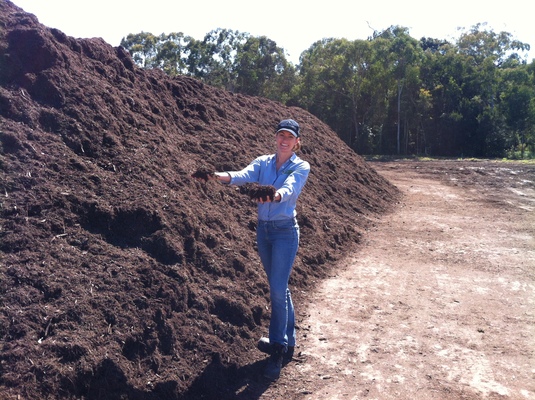By JOLENE OGLE
AFTER five months of deliberations, Noosa’s inaugural Community Jury has delivered their verdict on Noosa’s organic waste.
The jury’s nine recommendations were presented to Noosa Council at Monday’s (24 August) General Committee meeting, outlining proposed changes for how locals deal with their household waste.
The report to the council said the Jury’s recommendations were based on a vision of Noosa Shire reducing the amount of organic waste sent to landfill by 100 per cent by 2030.
The recommendations include the expansion of Noosa’s existing three-bin system to introduce mandatory weekly organic collections for residential areas, with mandatory green waste collection in 2015/’16, at minimal cost to ratepayers.
Organic waste will include food scraps such as fruit and vegetables, meat and fish scraps including bones and egg shells, coffee grinds and tea bags, animal droppings, plus grass clippings and leaves; all of which will be placed in the green-top bins currently used for garden waste only.
The jury also recommended moving to fortnightly collection of general waste bins once the organic collection has taken effect, as well as constructing a composting facility at a suitable site to turn the organic waste into high-grade useable compost, and design and implement a “grassroots, long-term education and awareness” campaign to help residents understand the benefits of organic waste management.
Rewarding excellent waste management by residents and monitoring compliance with the new waste management system are also part of the recommendation.
The jury also want to “Ban the Bag”, urging local businesses to use biodegradable bags by 2017, as well as direct large producers to target 100 per cent diversion of organic waste from landfill by 2030.
The group of 24 Noosa ratepayers said the recommendations were based on Noosa becoming a leader in organic waste management and outlined their vision for the future.
“In 2030, Noosa’s organic waste is no longer sent to landfill,” the report said.
“It is too valuable to be wasted. Instead, large quantities of nutrient-rich materials are collected from Noosa’s residents and businesses and brought to the award-winning facility at Eumundi Road where it is converted into high-grade compost.
“In our rural areas, residents will continue the good work they were doing back in 2015, targeting 100 per cent of organic waste is reused in home composting facilities and worm farms.”
The jury highlighted the need for council to be “upfront” with residents about the costs and benefits of the new waste management plan, should it be implemented.
“Council’s should clearly explain the costs and benefits of taking action to minimise organic waste,” the Jury report said.
“Research has shown citizens often overestimate costs because they do not know how much waste management costs. As a result, they are more sensitive to price changes than if they had a more accurate estimation.
“Research has also shown citizens will comply with new systems if the importance is explained to them, they are satisfied the organic waste is being treated appropriately and they will benefit financially in the long run.”
The second Community Jury will now discuss the Noosa River and how Noosa Council can manage it, with their first meeting held on Monday 24 August.
To read the Community Jury’s first report to council, visit www.noosa.qld.gov.au.








